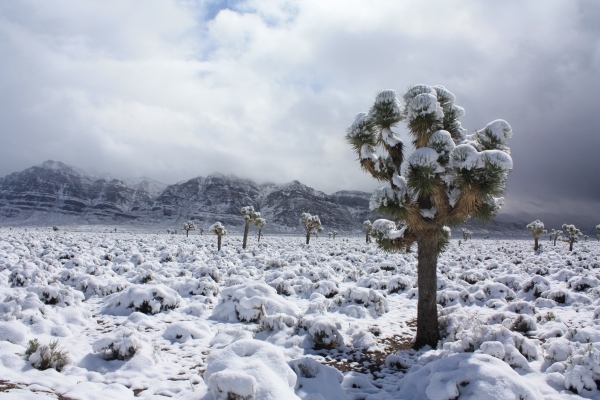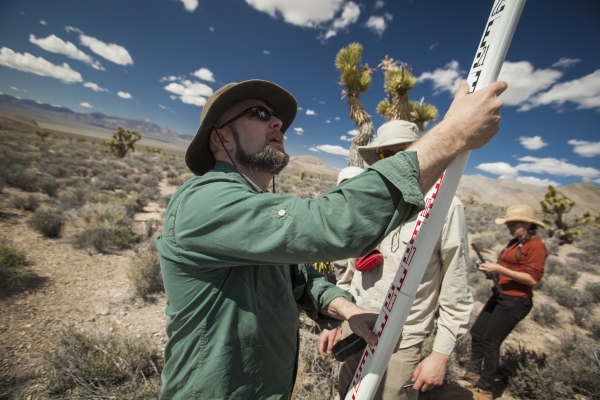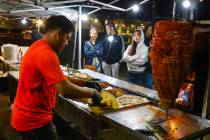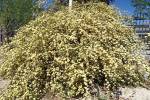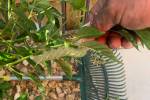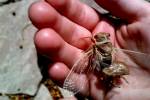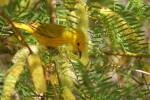Researchers seek donations to crack Joshua tree’s genetic code
For about the price of a fancy coffee drink, you can help researchers learn more about — and maybe even save — the iconic plant of the Mojave Desert.
A team of scientists led by a Joshua tree expert from Willamette University in Oregon wants to crack the plant's genetic code, and they're launching an online crowd-funding campaign to help pay for it.
"We are proposing to sequence the Joshua tree genome," said Willamette University project scientist Chris Smith.
By analyzing the plant's genes, researchers hope to learn how it adapts to harsh desert environments and how it might survive in a landscape altered by climate change.
Once they know what makes some Joshua trees more resilient than others, biologists can identify and stockpile seeds from those plants best suited to live an even hotter, drier world.
"If you're revegetating after a fire anyway, you can select trees more likely to survive climate change," Smith explained.
Ecological modeling suggests that warmer temperatures and longer droughts could make much of the Mojave Desert unsuitable for Joshua trees, driving many populations to extinction. Smith cited a recent study suggesting that Joshua Tree National Park in California could lose half of its namesake plants by the end of the century as part of a massive die-off that appears to be already underway at lower elevations.
Unlocking the Joshua tree's genetic code will be no easy task. Sequencing the human genome took 13 years and cost more than $3 billion, but a great deal of progress has been made in the field of genetics since then.
"The technology is getting good enough to handle even very large, complicated genomes, and the work can be done quite cheaply now," Smith said. "Our study will be 3,000 times cheaper than the human genome project."
The Joshua Tree Genome Project is expected to cost about $100,000. Smith and company want to get the process started with about $8,000 they hope to raise through the crowd-funding site Experiment.com.
"We're asking people to donate five or ten dollars to help this project get off the ground," Smith said. "Public engagement is a major goal for our work. The great thing about the crowd-funding model is that it allows people to get involved and directly support scientific research."
In recent years, Smith has hosted annual "citizen science" classes in Tikaboo Valley, near the Lincoln County town of Rachel, where he has been conducting field work on Joshua trees and their unique evolutionary relationship with a highly specialized yucca moth that pollinate the plants.
The crowd-funding campaign for the Joshua Tree Genome Project starts Wednesday and lasts through March 24 at Experiment.com/joshuatree.
Contact Henry Brean at hbrean@reviewjournal.com or 702-383-0350. Find him on Twitter: @RefriedBrean



